Beat Stress Fast: 25 Anxiety Relief Products You Can’t Live Without!
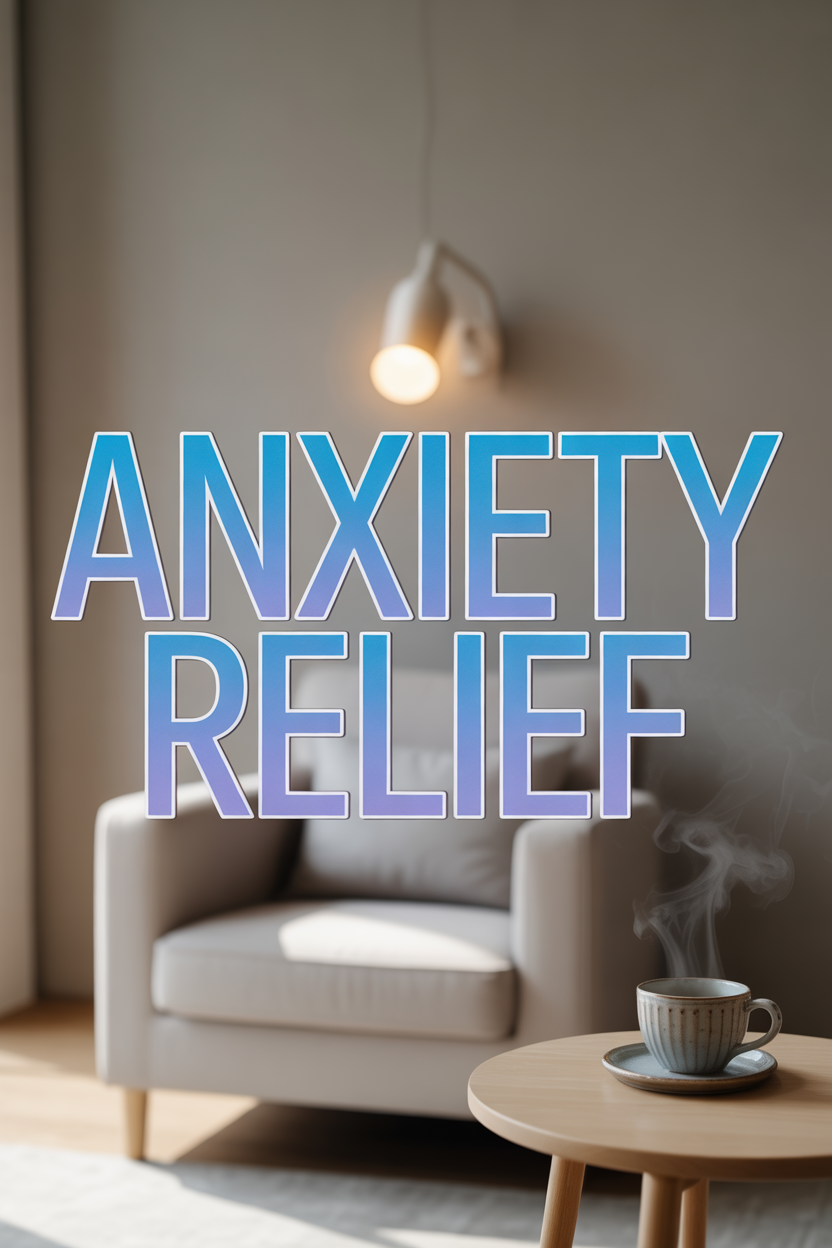
Top Physical Anxiety Relief Products That Actually Work (No Snake Oil Here!)
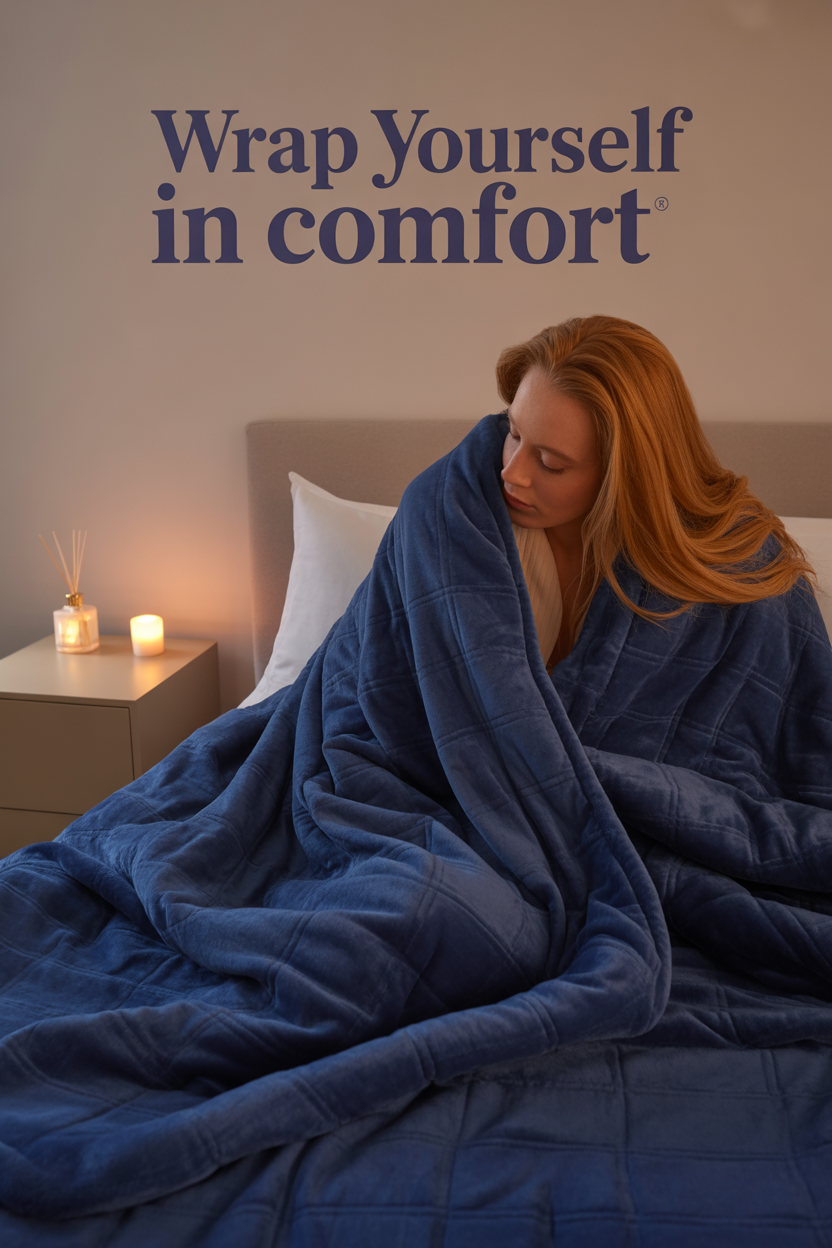
Weighted Blankets: Like a Warm Hug From a Non-Judgmental Friend
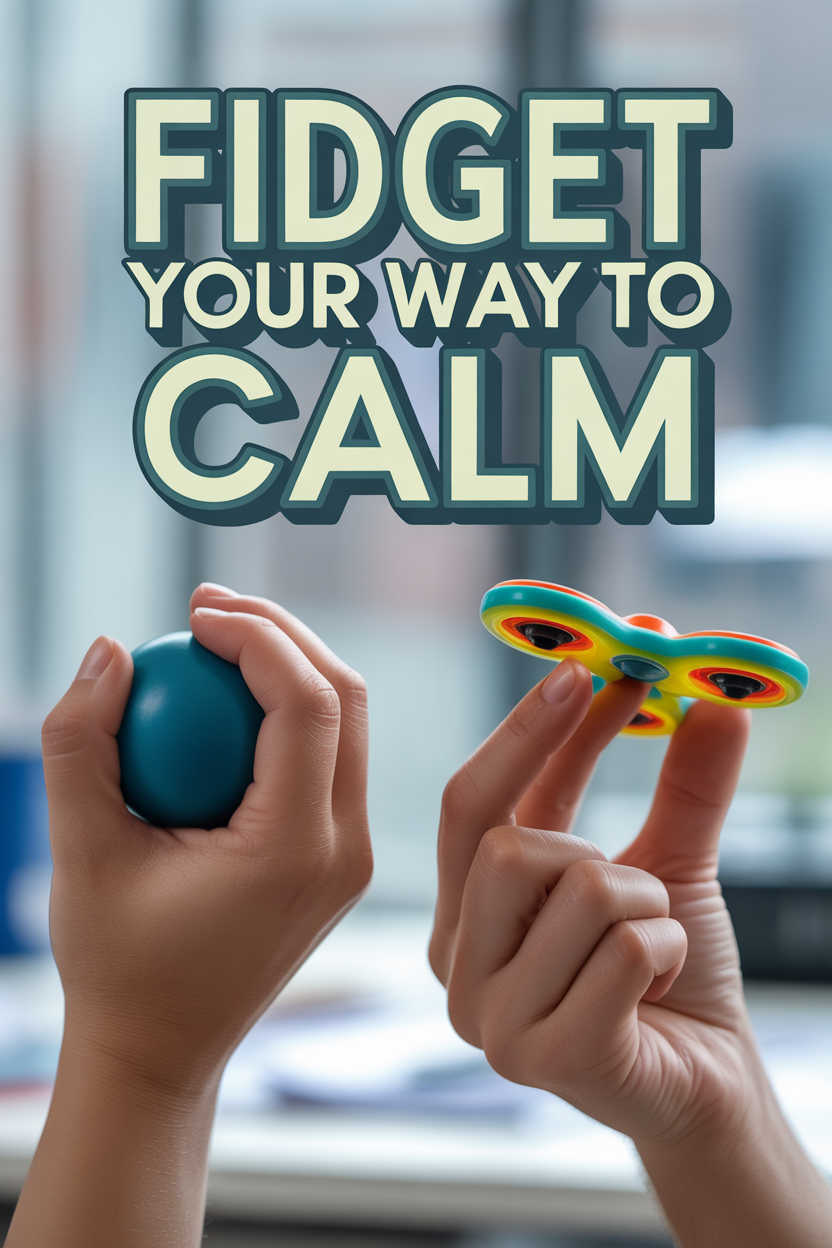
Remember how good it felt when your grandma wrapped you in that big blanket as a kid? Weighted blankets are basically that feeling in product form! These magical stress-squashers typically weigh 10-25 pounds and feel like you’re being gently hugged by a cloud.
How they work: Through “deep touch pressure stimulation,” which is fancy science-speak for:
- Triggering your brain to release feel-good chemicals (hello, serotonin!)
- Lowering cortisol levels (that pesky stress hormone)
- Creating a sensation similar to being held (without having to actually talk to anyone)
Shopping tip: Look for one that’s about 10% of your body weight. Too light and it’s just an expensive regular blanket; too heavy and you’ll feel like you’re being smuggled in a carpet.
Stress Balls and Fidget Toys: For When You Can’t Scream Into a Pillow in Public
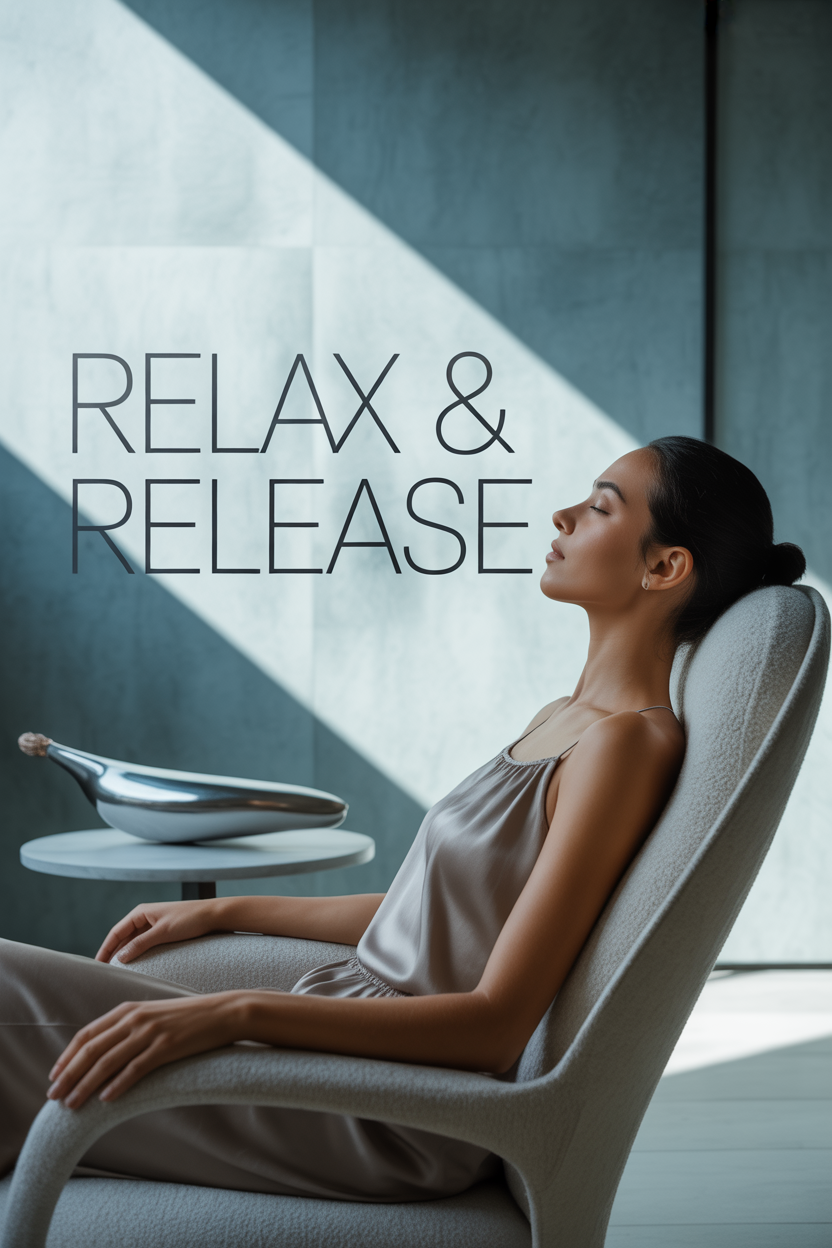
These pocket-sized anxiety tamers are perfect for redirecting that nervous energy that would otherwise have you reorganizing your desk drawers for the third time today.
My personal favorites:
- Classic stress balls (bonus points if they have funny faces that distort when squeezed)
- Fidget spinners (yes, they’re still cool, I don’t care what anyone says!)
- Infinity cubes for when you need to look sophisticated while freaking out
- Worry stones for channeling your inner crystal-loving guru
- Tactile putties that won’t get stuck in your keyboard (learn from my mistakes)
These are especially handy during those never-ending meetings where you’ve been on mute, silently losing your mind. 😅
Massage Tools: Because Your Shoulders Shouldn’t Be Touching Your Earlobes
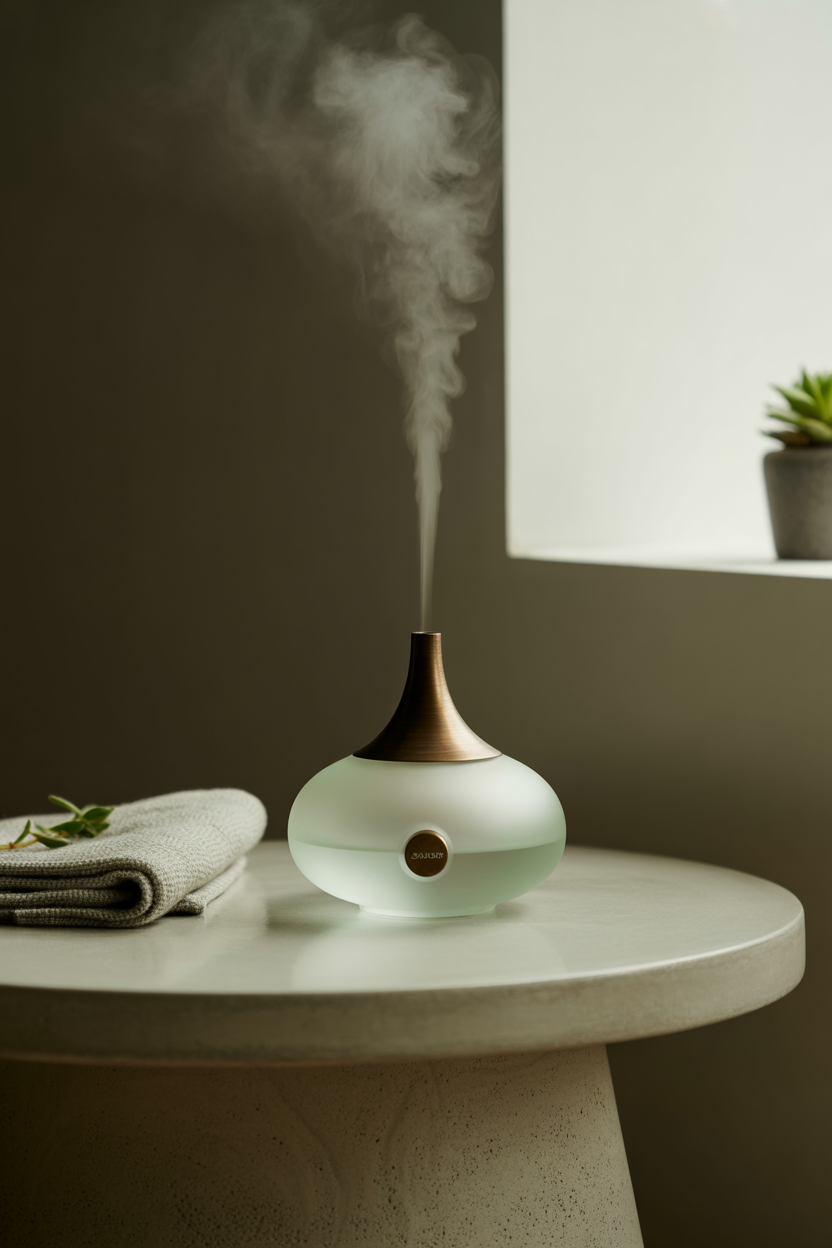
Nothing says “I’m carrying the weight of the world” quite like muscles that feel like concrete. Targeted massage tools help unravel those anxiety knots while giving you a moment of blissful relief.
Game-changing options:
- Handheld massagers for quick “I need relief NOW” moments
- Massage guns that make you feel like you have a personal masseuse (minus the awkward small talk)
- Foam rollers that double as excellent cat toys when not in use
- Acupressure mats for when you want to lie on what feels like a bed of friendly hedgehogs
Trust me, your future self will thank you when you’re not walking around with shoulders that could double as coat hangers!
Sensory Anxiety Relief Products: Engaging Your Five Senses (Instead of Your Worry Center)
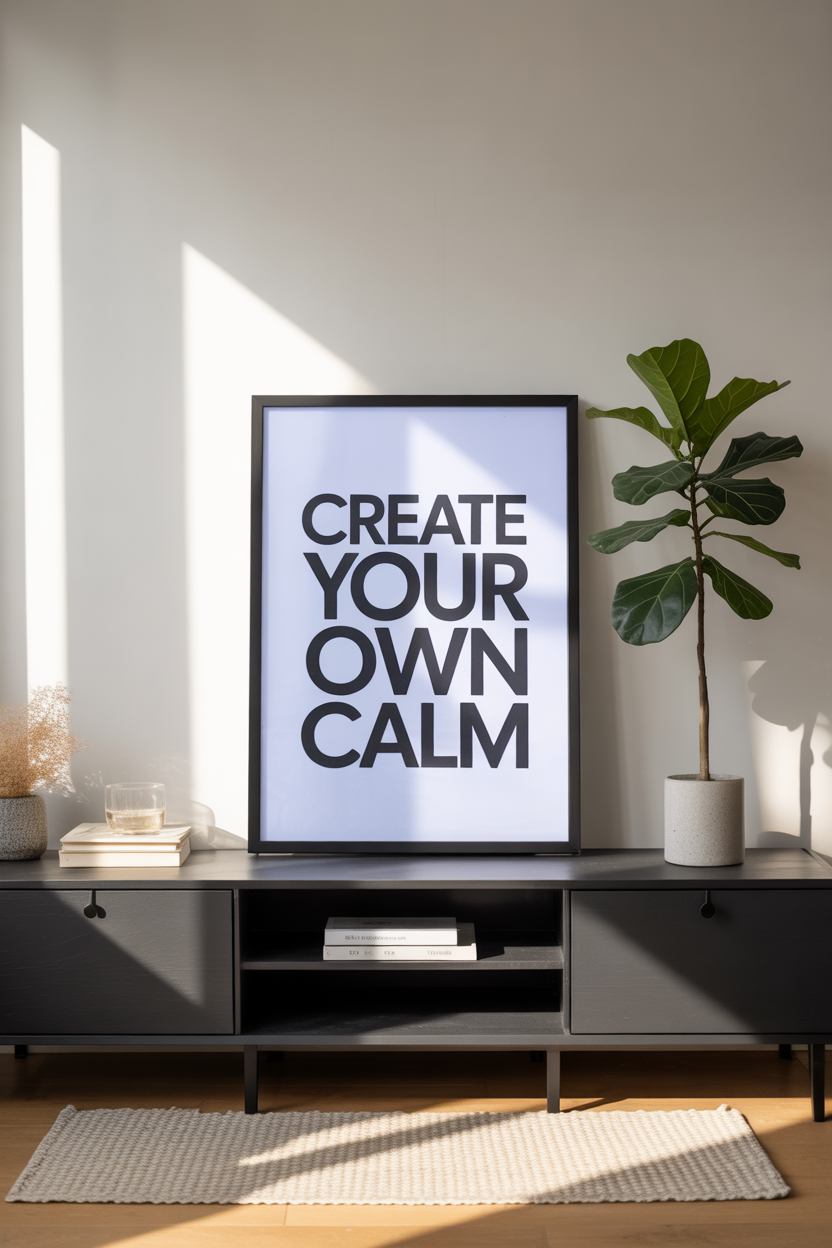
Essential Oil Diffusers: Making Your Space Smell Like Calm Instead of Chaos
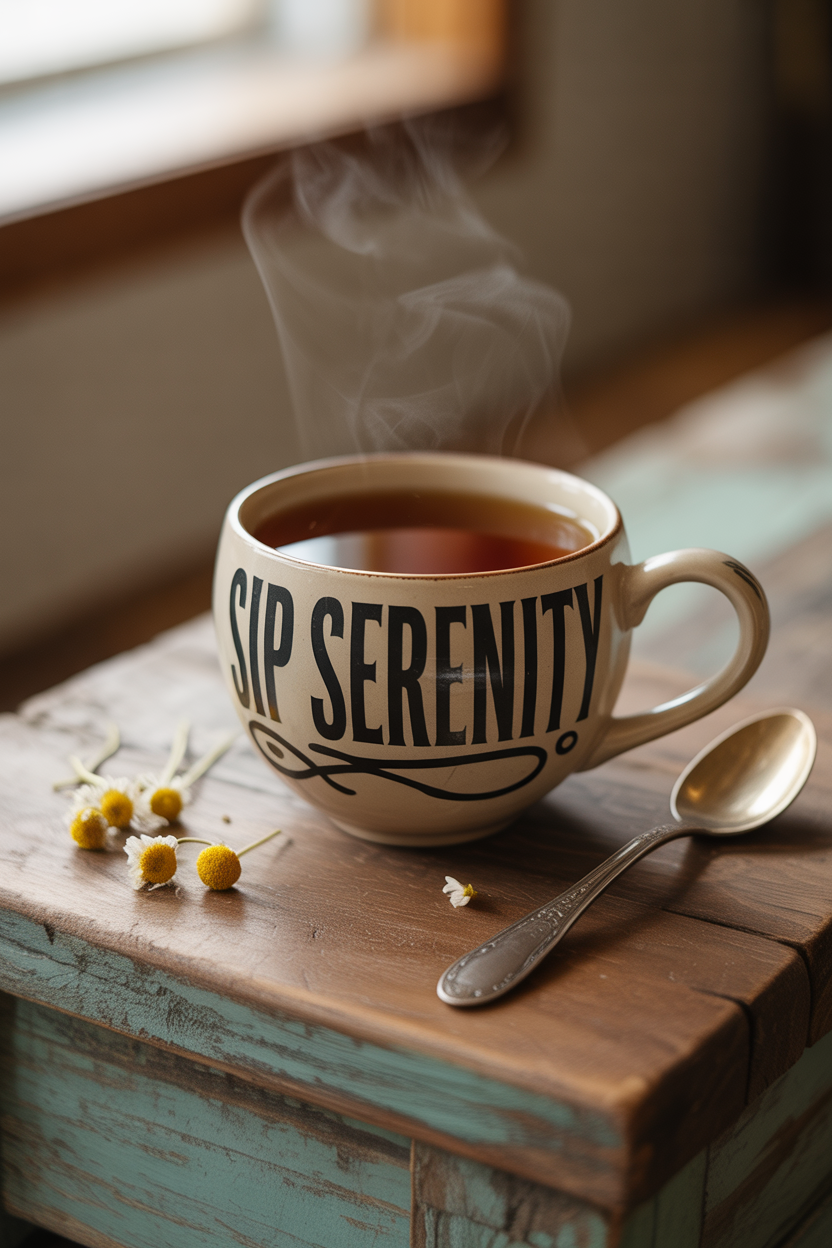
Aromatherapy uses plant-derived scents to trick your brain into chilling out. It’s like sending your anxiety on vacation to a lavender field!
The MVPs of calming scents:
- Lavender – The research darling of anxiety relief (and grandma’s favorite)
- Chamomile – Like a cup of tea for your nose
- Bergamot – The perfect balance of “wake up” and “calm down”
- Ylang-Ylang – Fun to say AND reduces heart rate (win-win!)
- Frankincense – If it was good enough for ancient anxiety, it’s good enough for modern worries
Whether you’re using fancy diffusers or just sniffing straight from the bottle in your car (no judgment here), aromatherapy is like having a reset button for your frazzled brain.
Light Therapy Lamps: Sunshine in a Box For Your Mood
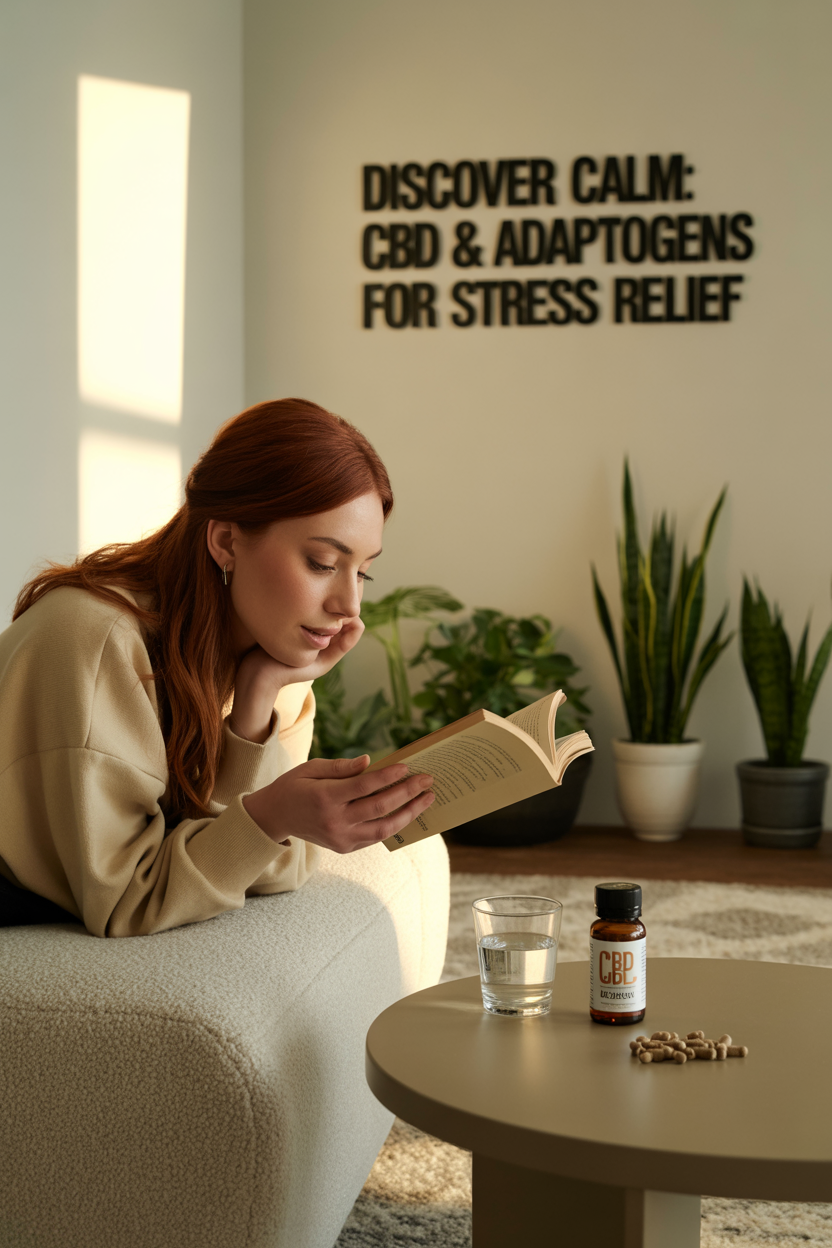
Light therapy lamps are like capturing a perfect sunny day and putting it on your desk. They emit bright light that tells your brain “Hey! Time to be happy!” without the harmful UV rays or need for sunscreen.
The bright side benefits:
- Energy levels that don’t require a six-shot espresso
- Mood boosts that don’t come with a sugar crash
- Sleep cycles that actually make sense
- Less seasonal funk when winter turns everything into a grayscale movie
Just 20-30 minutes in the morning can make you feel significantly less like a vampire avoiding daylight. ☀️
Sound Machines and Noise-Canceling Headphones: Because Your Neighbor’s Bass Doesn’t Help Anxiety
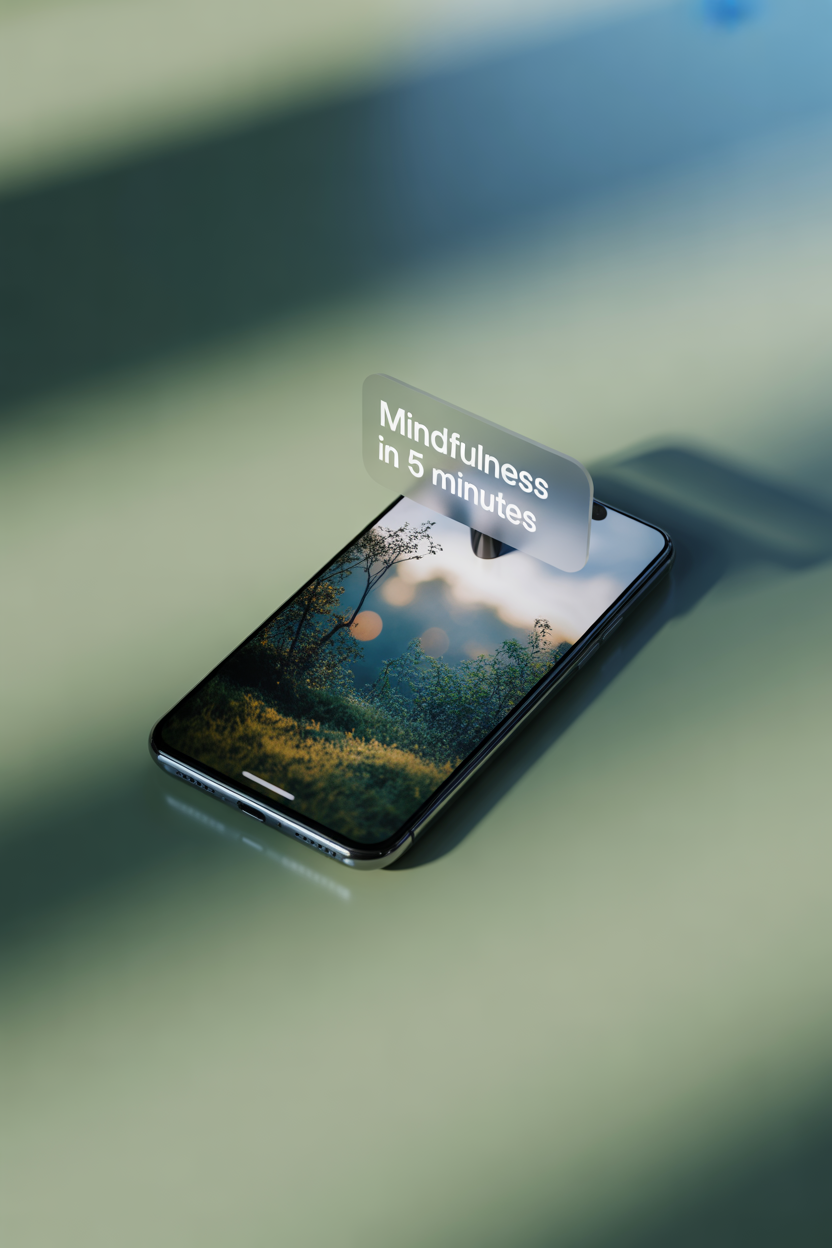
For those of us who get twitchy at every unexpected noise (was that the refrigerator or an intruder?!), sound management tools are absolute lifesavers.
Audio anxiety-busters:
- White noise machines that drown out everything from snoring partners to apartment neighbors who apparently run a bowling alley at midnight
- Nature sound generators for pretending you’re in a peaceful forest instead of a cubicle
- Noise-canceling headphones that create a force field against the chaos of open office plans
- Anxiety-reducing music that isn’t just whale sounds (unless that’s your jam!)
Consider these your audio bodyguards against a noisy, stress-inducing world.
Natural Supplements and Ingestibles: Calming Potions That Actually Work!
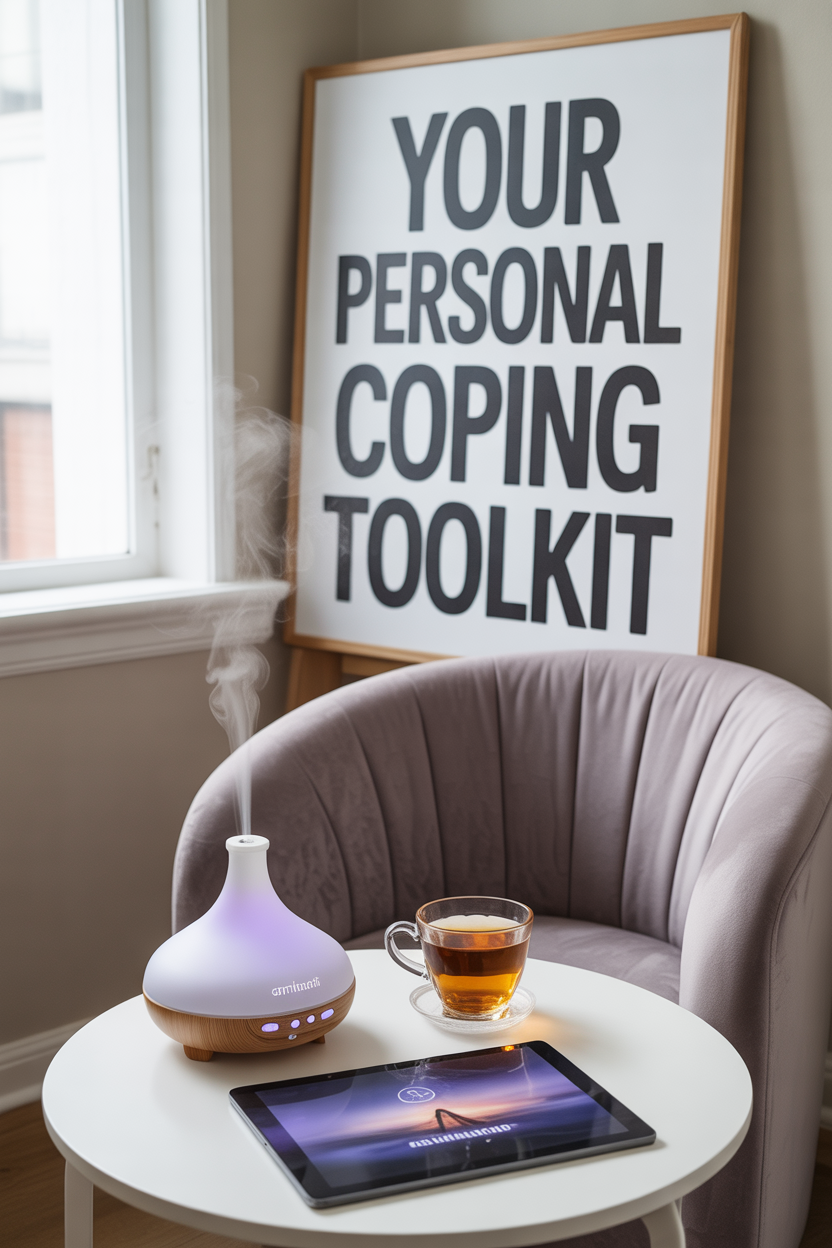
Calming Herbal Teas: Ancient Wisdom in a Mug
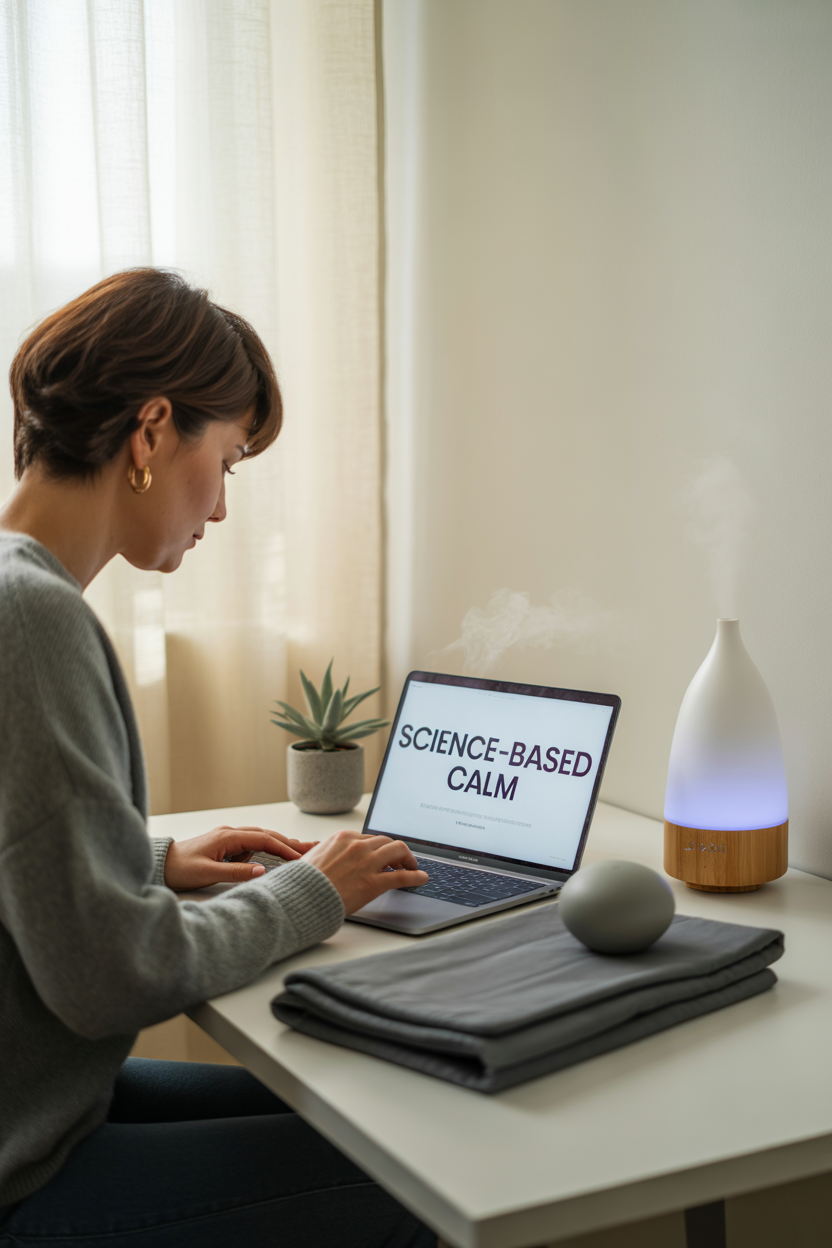
Herbal teas are like liquid meditation – warming, comforting, and filled with plant-powered chill vibes that have been calming humans for centuries.
The tea tension tamers:
- Chamomile tea – Contains compounds that basically give your brain receptors a gentle massage
- Lavender tea – Works double-duty through both taste and smell
- Lemon balm tea – Makes lemons into actual stress aid instead of the sour things life throws at you
- Passionflower tea – Ironically not for passion, but for helping you pass out peacefully
- Valerian root tea – Nature’s “shhh, go to sleep” in a cup
Plus, just holding a warm mug forces you to slow down and take a moment. It’s mindfulness disguised as a beverage break!
When Is It Time to Seek Professional Support?
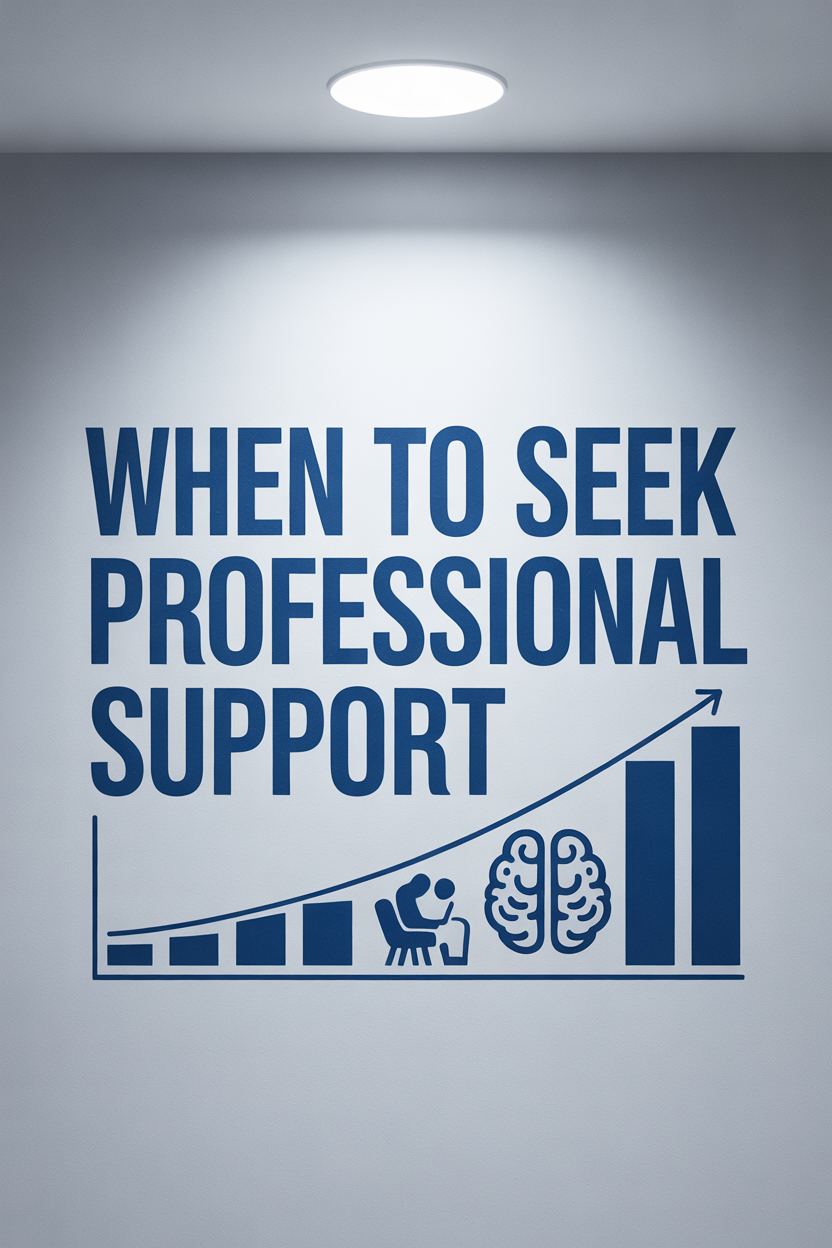
Self-care goodies are wonderful, but sometimes they aren’t enough, and that is 100% okay. It’s important to know when to call for backup.
Please consider talking to a doctor or a mental health therapist if you notice that your anxiety is getting in the way of your work, relationships, or daily life. Other common red flags include frequent panic attacks or feelings of hopelessness.
If you find that tools that used to help aren’t cutting it anymore or you are turning to substances to cope, it’s time to reach out. Asking for professional help is not a sign of weakness.
It’s a huge act of self-love and one of the most powerful steps you can take toward feeling better for the long haul. Prioritizing your mental health is the ultimate form of self-care.
CBD Products: No, They Won’t Make You Call Your Ex at 2am
CBD (cannabidiol) products have exploded in popularity faster than that plant you overwatered. Unlike THC, CBD won’t make you raid your pantry or find philosophical meaning in cartoon reruns – it just helps take the edge off.
The science says:
- May reduce social anxiety (without liquid courage side effects)
- Can help manage stress responses (without meditation apps yelling at you to “just breathe”)
- Potential sleep improvement (without the weird dreams melatonin gives you)
- Possible reduction in anxiety-related discomfort (without feeling like you’re floating outside your body)
Available as oils, gummies shaped like everything imaginable, and even fancy lattes at that coffee shop where a single drink costs as much as lunch.
Adaptogenic Supplements: Teaching Your Body to Say “Whatever” to Stress
Adaptogens are basically plant superheroes that help your body deal with stress like that one friend who never seems fazed by anything. These herbs and roots have been dropping stress-management knowledge since before stress management was cool.
The adaptive all-stars:
- Ashwagandha – May reduce cortisol levels by up to 30% (your adrenal glands just sighed in relief)
- Rhodiola rosea – Helps improve stress response when your brain wants to go into full panic mode
- Holy basil (Tulsi) – Calming effects with a name that sounds like it was blessed by anxiety exorcists
- L-theanine – The chill component in green tea, without having to drink gallons of it
These aren’t immediate fixes – they’re more like training your body for a stress marathon rather than a panic sprint. Think of them as your long-term stress management coaches.
Digital and Tech-Based Anxiety Solutions: Apps That Cost Less Than Therapy
Best Meditation Apps: Mindfulness Without the Mountain Retreat
Meditation apps have made mindfulness accessible to those of us who can’t jet off to a Tibetan monastery when anxiety hits. They’re like having a pocket Zen master who never judges your wandering thoughts.
The digital calm creators:
- Headspace – Guided meditations with a British accent that makes anxiety sound manageable
- Calm – Features sleep stories narrated by celebrities (because Matthew McConaughey telling you to relax actually works)
- Insight Timer – Largest free meditation library (because peace shouldn’t require a premium subscription)
- Waking Up – Deep mindfulness for when you want to question the nature of anxiety itself
- Ten Percent Happier – For skeptics who roll their eyes at crystals but still need to chill out
These apps provide structure for those of us who sit down to meditate and immediately start planning dinner or remembering embarrassing things we did in 2007.
Biofeedback Devices: Your Body’s Tattletale Technology
Biofeedback devices are like having a translator for what your body is trying to tell you. Instead of vague feelings of “I’m stressed,” you get actual data showing exactly how stressed you are (as if you needed confirmation, right?).
The feedback friends:
- Heart rate variability monitors that show when you’re stressed even if you’re in denial
- Respiration sensors that prove you actually aren’t breathing properly when anxious
- Skin conductance trackers that reveal you’re literally getting hot and bothered
- EEG headbands that show your brain throwing a party when you’re trying to relax
These gadgets provide concrete evidence about your stress levels, which is particularly satisfying for the data nerds among us. Quantify your calm!
Virtual Reality Therapy: Escape Rooms for Your Anxious Brain
Virtual reality (VR) therapy is like a teleportation device for your stressed-out mind. Why worry about your problems when you can be sitting on a virtual beach or floating through digital stars?
The immersive magic:
- Creates calming environments without expensive vacations
- Provides controlled exposure therapy (face your fears without actually facing them!)
- Offers guided relaxation in settings more interesting than your living room ceiling
- Enhances traditional mindfulness by making it feel less like work
From simple smartphone headsets to fancy equipment that makes you look like a time traveler, VR offers unique opportunities to literally escape your anxiety (at least temporarily).
Creating Your Personal Anxiety Arsenal: Mix and Match for Maximum Chill
How to Build an Effective Anxiety Relief Toolkit (Without Bankrupting Yourself)
The secret to managing anxiety isn’t finding one magical solution—it’s creating a personalized anxiety-fighting team that works for YOUR specific brand of worry.
Your anxiety toolkit essentials:
- Immediate relief tools for when anxiety ambushes you (breathing gadgets, fidget toys, emergency chocolate)
- Daily maintenance products for keeping baseline stress manageable (supplements, meditation apps, comfort items)
- Environment upgrades that reduce overall stress triggers (light therapy, sound machines, plants that you hopefully won’t kill)
- Physical tension relievers for when your body is holding stress hostage (massage tools, weighted blankets, stretching equipment)
By combining approaches that address both the mental “AHHH!” and physical “ouch,” you create a comprehensive strategy that anxiety can’t easily penetrate.
Budget-Friendly vs. Premium Products: Is That Gold-Plated Stress Ball Really Better?
Anxiety relief comes in all price points, and sometimes the simplest solutions are the most effective (and won’t require explaining strange credit card charges to your partner).
Brilliant budget options:
- DIY rice-filled heating pad (under $5) vs. electric massage chair that costs more than your first car
- Free meditation apps vs. subscription services that charge you monthly for silence
- Basic essential oils vs. automated aromatherapy systems that require their own Wi-Fi connection
- Library books on anxiety management vs. expensive courses taught by people with perfect hair
Start with affordable options to discover what works for YOUR anxiety before investing in fancy versions. Remember: consistency beats luxury every time. The best anxiety relief product is the one you’ll actually use!
When to Use Each Type of Anxiety Product: Strategic Deployment for Maximum Effect
Different anxiety scenarios call for specialized tools – you wouldn’t bring a weighted blanket to a work meeting (though honestly, sometimes I wish I could).
Situation-specific strategies:
For sleep anxiety:
- Weighted blankets (like a sleep sandwich where you’re the filling)
- Calming teas that won’t make you get up to pee all night
- Sound machines to drown out your partner’s snoring and your own thoughts
For work stress:
- Desk-friendly fidget tools that won’t annoy your colleagues
- Noise-canceling headphones to create the illusion that you’re not in an open office plan
- Quick breathing exercises that don’t involve audible sighing
For social anxiety:
- Portable aromatherapy that doesn’t make you smell like you bathed in essential oils
- CBD products for pre-event nervousness
- Guided meditation recordings for bathroom pep talks
For travel anxiety:
- Noise-canceling headphones to block out crying babies and engine noises
- Travel-sized weighted items that won’t exceed baggage limits
- Mobile relaxation apps that work in airplane mode
Having the right tool for the right anxious moment is like having different umbrellas for different types of rain – practical AND impressive!
The Science Behind the Serenity: What Actually Works?
Research-Backed vs. “My Cousin’s Roommate Swears By This” Solutions
In the land of anxiety relief, it helps to know what’s backed by science versus what’s just really good marketing with calming fonts and pictures of people doing yoga on mountains.
Strong scientific support:
- Mindfulness meditation (enough studies to fill a library)
- Weighted blankets (researchers agree: pressure = pleasure)
- L-theanine and certain adaptogens (actual clinical research)
- Controlled breathing techniques (because science confirms you need oxygen)
Growing evidence but still promising:
- Essential oils (more than just smelling nice)
- Light therapy (especially for seasonal mood shifts)
- CBD (research catching up with popularity)
Limited but intriguing research:
- Newer tech gadgets (too recently invented for long-term studies)
- Some trending supplements (jury’s still deliberating)
Look for products with scientific foundations rather than just compelling Instagram testimonials from people with suspiciously perfect lives.
How These Products Work With Professional Treatment (Teamwork Makes the Dream Work)
For those with clinical anxiety, these products work best as sidekicks to professional treatment, not replacements. Think of them as Batman’s utility belt – helpful tools, but not the hero of the story.
Smart integration strategies:
- Use mindfulness apps to reinforce what your therapist teaches (like homework, but more enjoyable)
- Discuss supplements with healthcare providers (to avoid unwanted surprise interactions)
- Apply physical tools like weighted blankets to enhance sleep recommendations
- Track your progress with digital tools to share insights with your treatment team
Many therapists actually love when clients bring these tools into treatment – it shows you’re taking an active role in feeling better!
When to Call in the Professionals (Because Sometimes DIY Isn’t Enough)
Warning Signs That Self-Help Products Need Backup
While anxiety relief products can be wonderfully helpful, they have their limits – like trying to fix a broken pipe with meditation and essential oils. Sometimes you need a plumber. Or in this case, a mental health professional.
Time to seek professional help if:
- Your anxiety is the unwanted roommate that never leaves and affects daily functioning
- Panic attacks have become your unwelcome regular programming
- You’ve tried multiple self-help approaches but anxiety remains stubbornly present
- You find yourself using alcohol or substances as your primary coping tool
- Your anxiety brought friends: depression, insomnia, or other concerning symptoms
Remember: Seeking professional help isn’t failing at self-help – it’s actually the most effective form of self-help there is!
